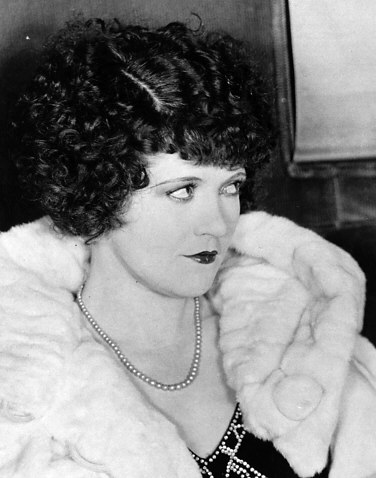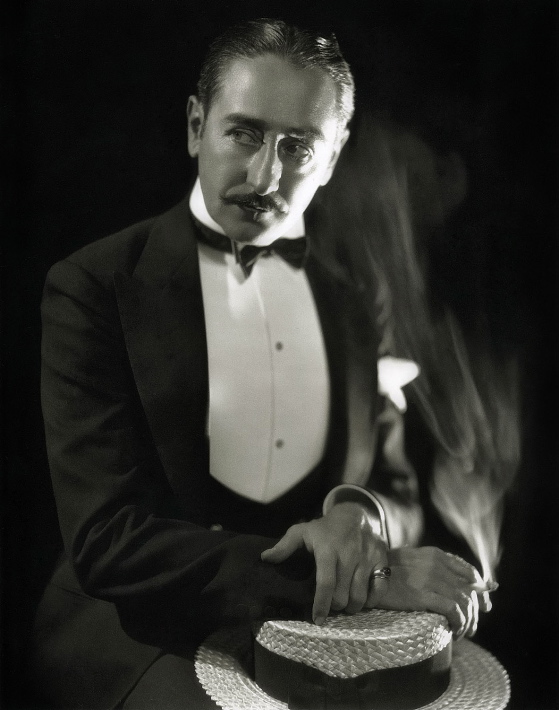
At first it seems as though this film, like a Seinfeld episode, is going
to be about nothing, but in an amusing way — about flirtation not
love, suspicion not jealousy, pique not passion. From the start you
just don’t care, because it’s all done with such delicacy and style.
The performers hardly seem to inhabit the same artistic universe as
Pickford, Keaton, Lloyd — the brash, innocent, plastically
explosive world of mainstream Hollywood movies in the silent era.
There’s a languor, a subtlety, a world-weary wittiness in the playing
that contribute to an overall tone which Lubitsch seems to have
imported wholesale from Europe (by way of Chaplin’s A Woman Of Paris) and cast like a spell over his American actors and crew. No collision of aesthetic strategies here, of the sort we see even in some of the greatest Hollywood silent films — this
artistic vision is of a piece, totally assured, astonishingly mature.
And though this vision derives to some degree from literary sources, from
turn-of-the-century European plays and novels, it has been
fundamentally reimagined in visual terms — intertitles are sparse and
virtually irrelevant. Lubitsch’s visual style is not, however, one of
great plastic power — the felicities of it are on a small scale,
restrained and minutely observed:
A flower falls accidentally from the hands of a woman and lands, in close up, at the feet of a hopeful suitor. There is a pause — we sense the suitor looking down at it in wonder — before he picks it up.
A happily married couple are having breakfast — Lubitsch lingers in close up on the egg he’s breaking, the coffee she’s stirring, until they abandon the tasks and embrace . . . off screen.
A woman at an indiscreet garden rendezvous throws off her scarf
seductively and it blows away — we see it land in close-up at the feet
of her indiscreet partner’s wife, somewhere else in the garden, catch
on the foot of the wife’s importunate companion . . . it’s carried
along by him, still in close up, until the wife steps on it, and they
both realize something is amiss.
A straw hat travels about town during the course of one romantically disastrous night, passed along from one lover and would-be lover to another, forgotten, discovered, brandished, claimed.
Gradually, as the tiny missed connections between people accumulate, as the
minute, half-conscious indiscretions gather momentum, as the
unhappiness of Mizzi, the character at the center of the tale, radiates outward and infects all those around her, the movie becomes profound. Inconsequential acts fill the void at the
center of feckless lives and melancholy, incurable because it’s unexamined, creeps into the farce.

When Mizzi, to distract her husband from some incriminating bit of romantic
evidence, embraces him and says, “I need to be loved,” it’s both a ruse
and a true confession — and the look of bemusement and surprise on the
face of her husband, played with miraculous precision by Adolphe
Menjou, is actually heartbreaking. Just for a moment he believes her —
until that darned straw hat turns up once again and his habitual
cynicism is confirmed.
Nothing is ever quite what it seems in this film, a fact that is admitted and
even celebrated in the finale between the “happy” married couple — who
achieve their reconciliation by a double ruse in which each is deceived
and each the deceiver. Only we, the audience, know the whole story. The
suggestion is that the difference between a good marriage and a bad one
is luck, a healthy dose of ignorance, and just a little extra — almost
imperceptible — application of goodwill.
In the end, The Marriage Circle is not about nothing after all — issues of enormous consequence are caught up in its gossamer threads. It’s very great filmmaking and very great art.
